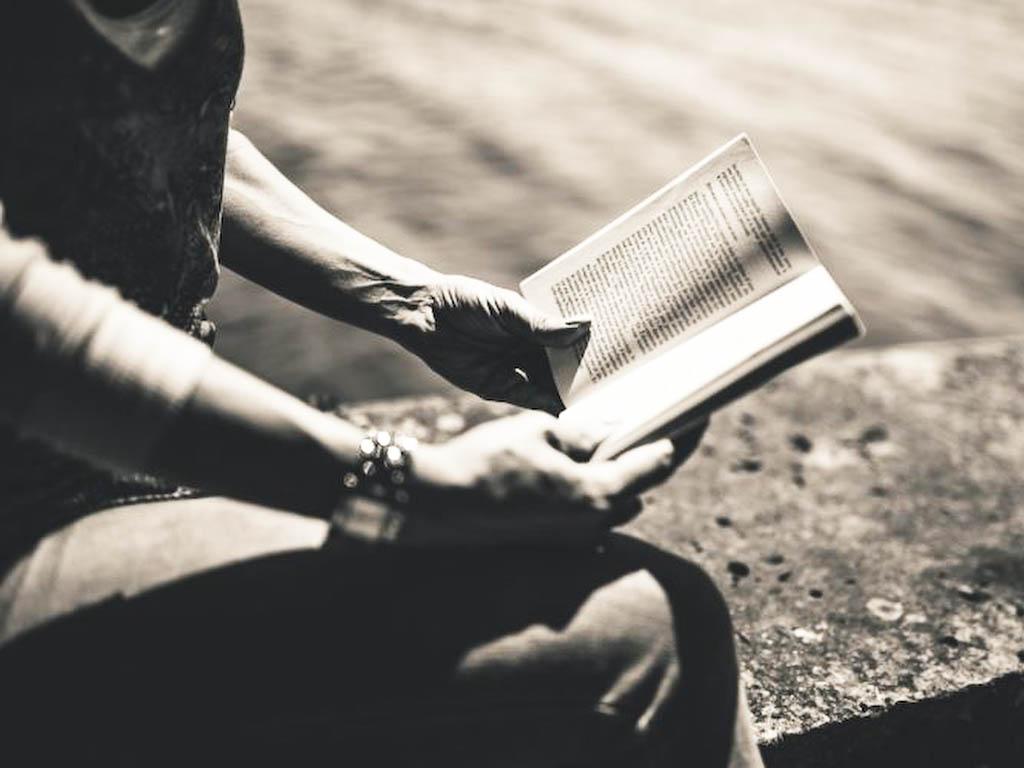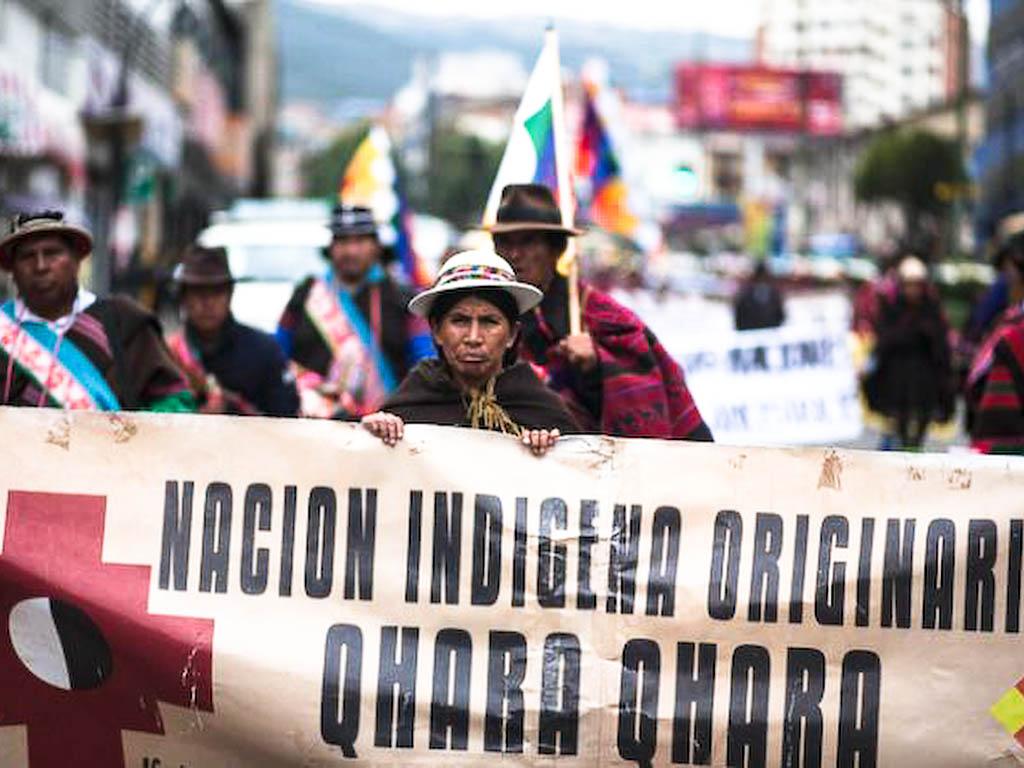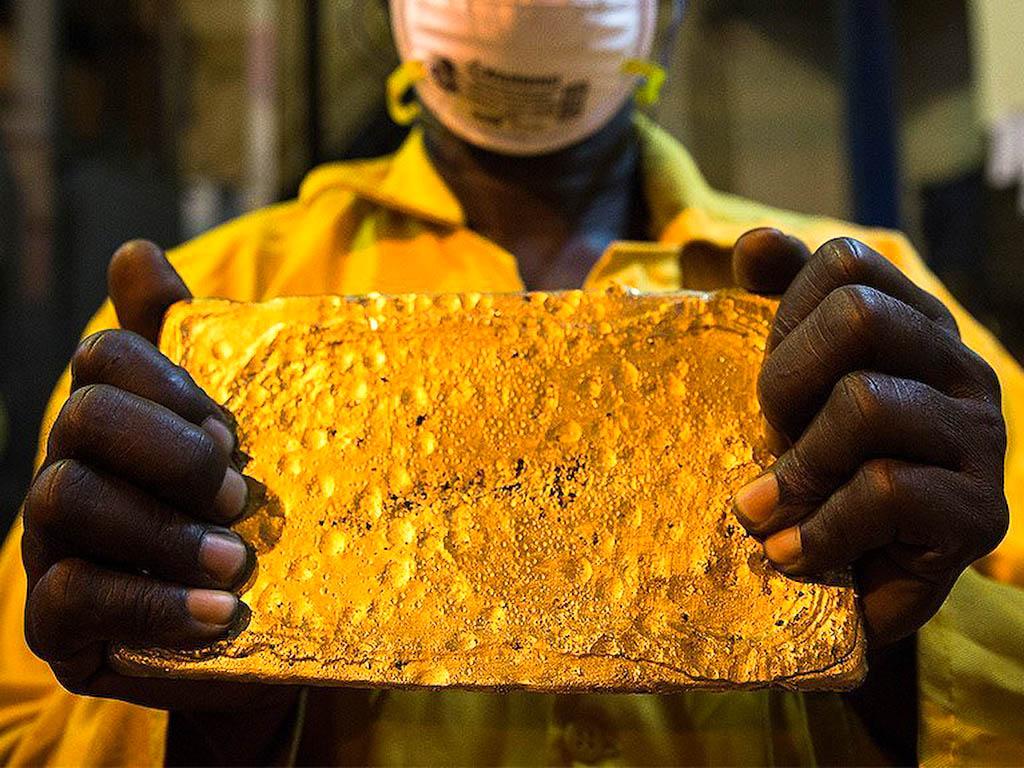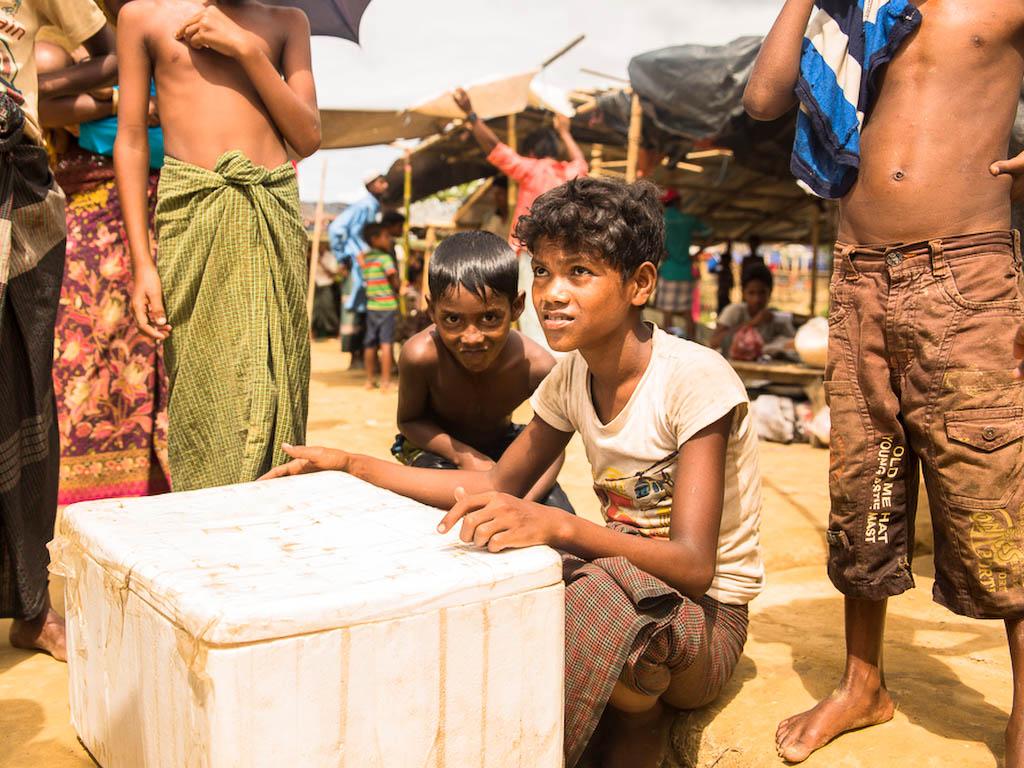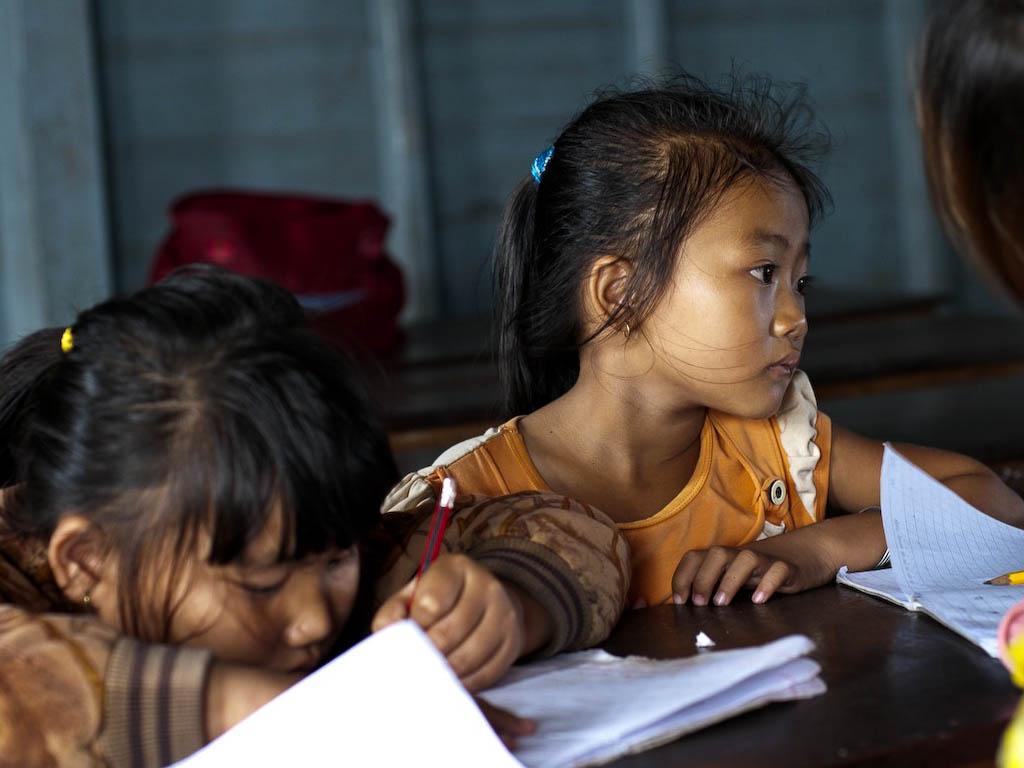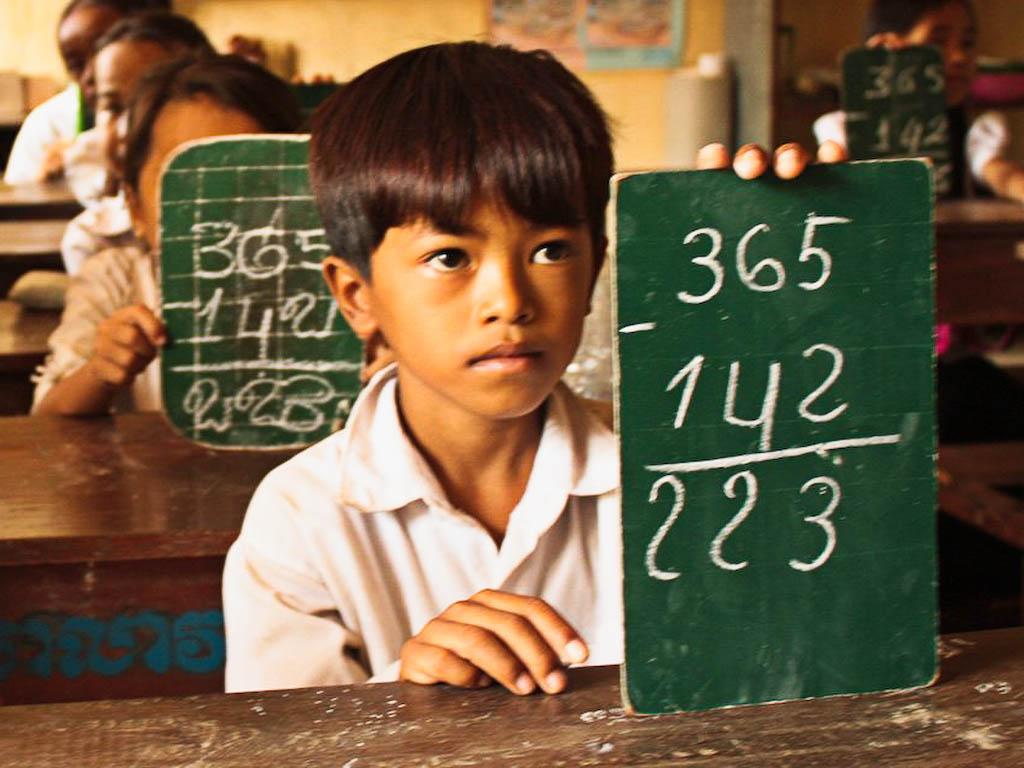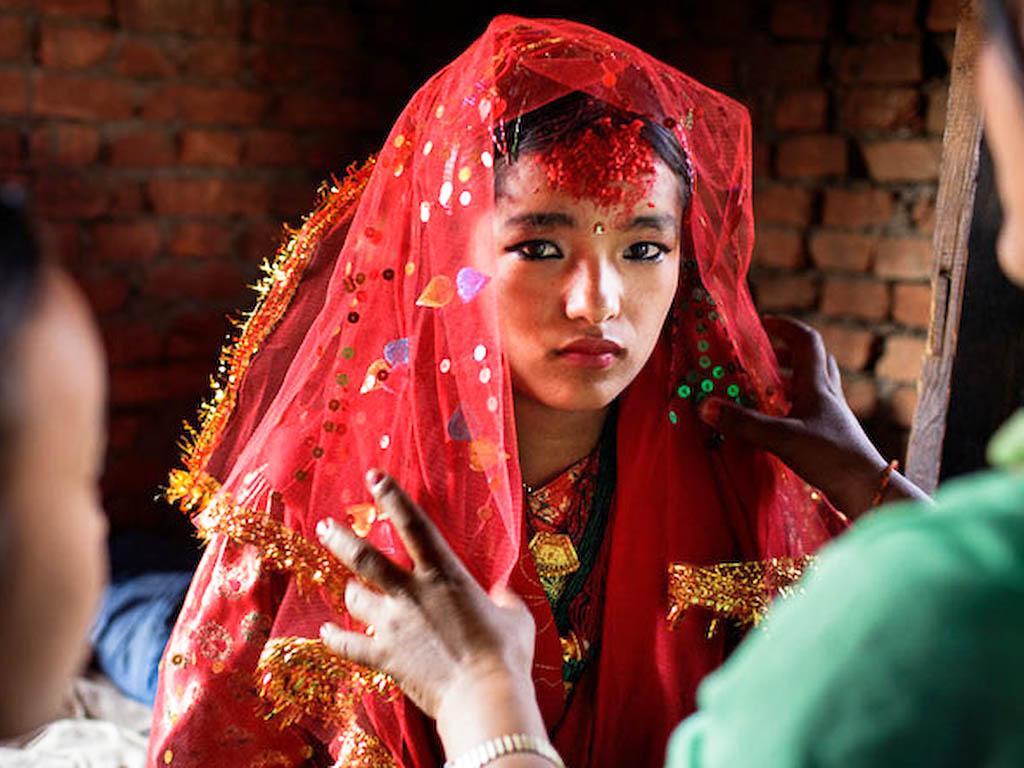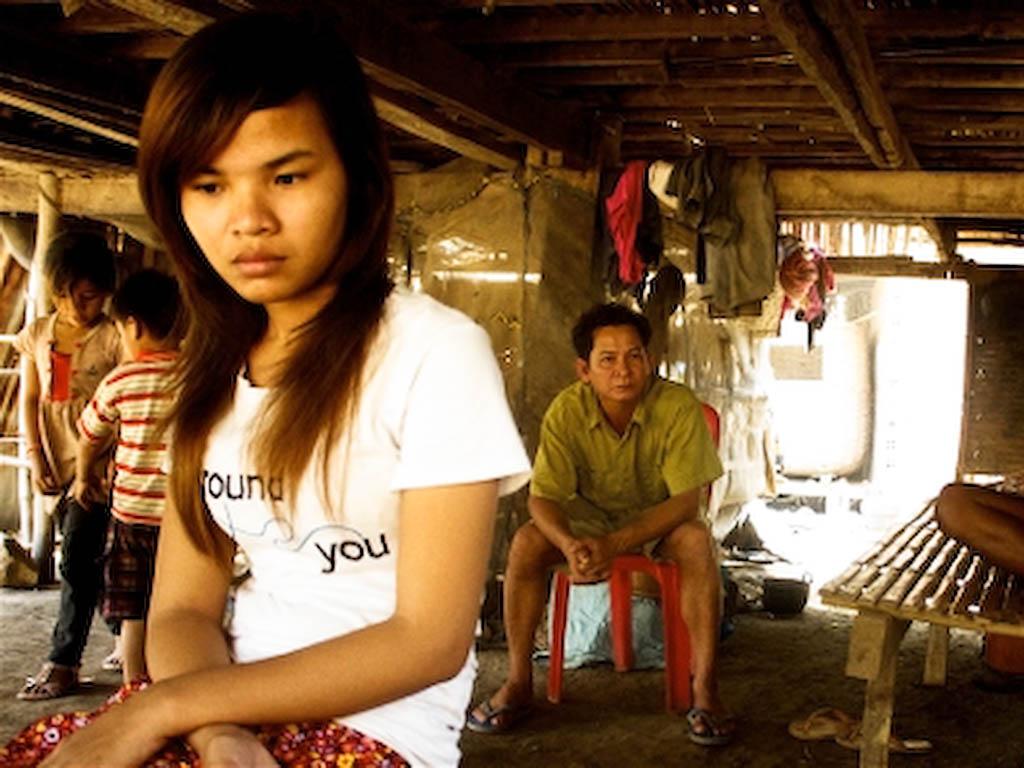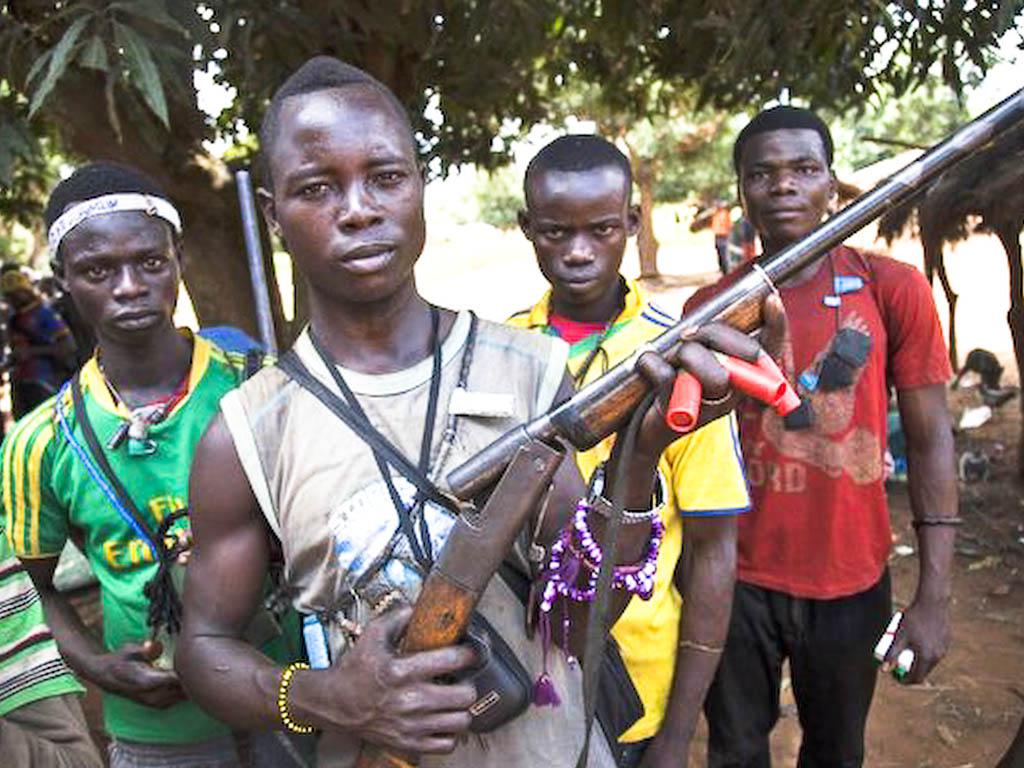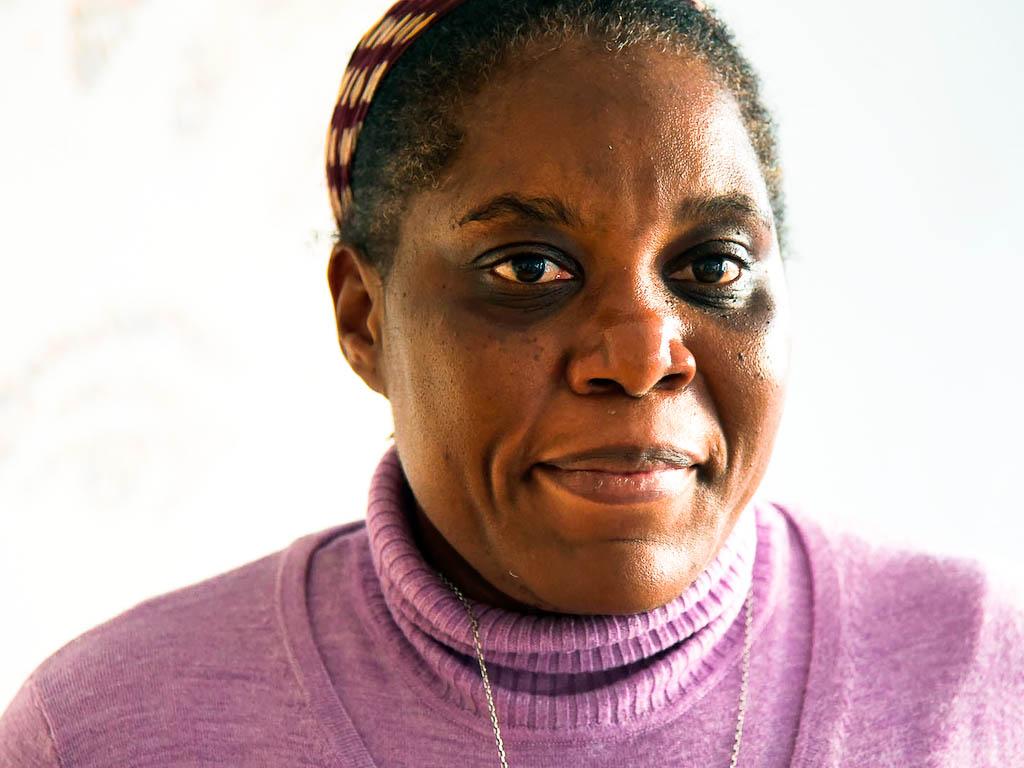Jpic News from John Paul Blog - Vol. 7 - N 5
|
THE NEWS OF THE MONTH
The challenge of fake newsFake news is today one of the most debated socio-political topics with legal and media processes to websites, journalists, communication professionals and information platforms that deliberately or not publish hoaxes and misleading news. From the Internet this false news is often taken and shared on social media and thus increases its impact on society. As a result, people become increasingly wary. In the United States over a quarter of those interviewed by Statista - a website that, on payment, offers analysis, interviews and access to more than a million facts and statistics on Fake News - say they rarely trust the news circulating in the press, on the internet, or through social media. Journalism was considered the Fourth Power, the watchdog that by informing the public the nation was protected by guaranteeing the truth. Nowadays that information arises from all sides, from the media and from the public itself, so does this defensive role still exist? The number of journalists who are at risk and pay with their lives to reveal information important for public life is increasing year by year. There is on the big screen Kill the Messenger, a film based on the true story of Gary Webb. He was a journalist, who in the mid-1990s, revealed the CIA's role in arming Nicaraguan contras and importing cocaine into California. He is put under enormous pressure, chooses to continue his denunciation and becomes a victim of fierce slander fueled by the CIA, was forced to defend his integrity, his family, his life, until suicide. Serena Shim, a North-American journalist of Lebanese origin, discovered that ISIS jihadists were smuggled between Turkey and Syria in humanitarian aid vehicles. A few days later, she died in a car accident killed by a heavy vehicle that would never be identified. Go on reading | |
|
THE GOOD NEWS
When the leadership fails People upraisesThe Political Constitution (2009), praised as a great achievement of Evo Morales, who belongs to the Aymara indigenous community and has been in power since 2006, in its 2nd article declares Bolivia a “plurinational State” and recognizes the country’s indigenous peoples as nations. However, a recent case of land conflict exemplifies the situations experienced by the people. The state-run National Institute of Agrarian Reform (INRA), responsible for legalizing land titles to rural properties, made an unwelcome visit to the town of Quila Quila on Feb. 27, with 40 police backup to measure the land requested by 150 ‘third parties’ people [people from outside the community]. Quila Quila is located southwest of Sucre, which is the capital of the department of Chuquisaca, one of the nine into which Bolivia is divided. The ancient Qhara Qhara nation, in defense of its rich ancestral lands, started a march of nearly 700 km over the space of 41 days, from the official capital, Sucre, to La Paz, the country’s political hub. Protesting against the grabbing of their ancestral lands, the threats to their culture, they asked the government to correct the abuses. Reaching La Paz on Mar. 18, they suspended their protest giving the government two months to act for legislative changes described in three bills already received by Legislative committees. The bills would assure the restitution of ancestral territories & respect for indigenous justice systems and for their autonomy. The Qhara Qhara do not want either confrontations or their land to be handed over to ‘third parties’. This goes against the national director of INRA, who wrongly said that 90% of Quila Quila’s residents want individual titles to their land, and only 10 percent are demanding the recognition of collective ownership. The Qhara Qhara – which in the ancient Qaqina language means two hills –, together with the Pikachuri peoples, have been fighting for recognition of their nation since 2002, with their “markas” (indigenous territorial units), and “ayllus” (enlarged community) and communities. The Qhara Qhara people currently number 48,000, distributed in eight “markas”. As a precursor to the Qhara Qhara march, there is the August 1990 march by indigenous peoples from the tropical rainforest of Beni, when they trekked 600 km to protest “the structural bases of the colonial institutionality represented by the monocultural, discriminatory and exclusionary neoliberal and republican State.” Evo Morales capitalized on those demands to become the country’s first indigenous president. He then channeled them to a Constituent Assembly that completed the drafting of the new constitution of 2009. Today this constitution and the rights of indigenous peoples themselves are in serious danger: Bolivia is a State of just over 11 million people in which the majority of the population are the 36 recognized native peoples, the largest being the Quechua, Aymara and Guaraní. The Qhara Qhara people produce food, conserve thermal and fresh water sources, and have abundant minerals under their land, such as gold, iron, zinc and tin. The “outsiders”, the ‘third part’ are city dwellers or children of the “Yanaconas,” people in the service of landowners prior to the agrarian reform, who are trying to obtain rural property with individual titles in order to commercialize the land and not use it for crops. The indigenous leader said their struggle for legislative changes will favour other native groups who are demanding the restitution of their lands and the recognition of indigenous judicial authorities. “During the Spanish colonial era we obtained respect for our ancestral lands and now we are seeking respect for the plurinational State of Bolivia,” state their leaders. The legal changes that they are demanding are for the benefit of all 36 native peoples, and that on July the progress of their proposals will be assessed. What underlies the land grab in indigenous communities is the will of “imposing unbridled extractivism” of natural resources that will result in the displacement of local populations, threatening the very survival of native communities and cultures. During the march, intellectuals, academics and international organizations signed a letter of support “for the native nations and indigenous peoples of Bolivia and the different countries of South America, for their struggle for land and for their right to self-determination, autonomy and restitution of their political authorities and ways of life.” | |
|
THE WORST NEWS
Uganda gold turnover platform?The Uganda bases company, African Gold Refinery, established by a Belgian and located in Entebbe, 43 kilometers (27 miles) from Kampala, near the international airport, is times to times under scrutiny for suspicious dealings in minerals. Recently, it was facing Ugandan sanctions over the importation of 7.4 tons of gold earlier in March, from growing allegations that minerals are from conflict-plagued countries. It had already exported 3.8 tons of the gold that may have originated from South America but Ugandan police hold the remaining 3.6 tons because, "There is a possibility that it could have come from Venezuela," said police spokesman Fred Enanga. African Gold Refinery has not revealed where disputed consignment was sourced, but Alain Goetz, the Belgian tycoon who established the company in 2014, stated firmly that the company had committed no crime in importing the disputed consignment and complained that the refinery, had been unable to export for 17 days, leading gold dealers to move other main city like Nairobi in Kenya. The gold exports from Uganda has been rising in recent years and it is now Uganda's major export commodity, along with coffee: from 0,000 in 2013/14, it rose to 4 million in the 2015/16 financial year. However not much of this mineral is mined in Uganda. Last year, Sentry, an investigative initiative co-founded by North-American actor George Clooney, reported that gold mined from conflict areas in eastern Congo could flow to international markets through African Gold Refinery. That report urged Ugandan authorities to investigate the refinery for potential money laundering and called on the U.S., the U.N. Security Council, and the European Union to "investigate and, if appropriate, sanction gold refining and trading companies and their beneficial owners." Actually, Ugandan police have returned the hold gold worth 9 million after the attorney general dismissed allegations that it was smuggled from Venezuela, which is under U.S. sanctions targeting a gold sector, a key economic pillar of President Nicolas Maduro' s government. | |
|
CELEBRATING!
At their serviceAll over the world people have risen and continue to strive, push and persevere to make human rights a reality for all of us. These people are human rights defenders. They are the advocates who hold governments and bureaucrats accountable to the people they serve. They are the activists who expose corporations which fail to operate responsibly and sustainably. They are the dedicated individuals and groups who work so that all people - even the most marginalized and disadvantages - are able to access adequate housing and health care, fair and just conditions of work, and healthy environment. They work to ensure that none of us are harassed, imprisoned or even killed because of what we say or believe, who we love, or the color of our skin. It is clear that defenders should be supported and celebrated. Instead, they are increasingly subject to stigmatization, restriction and attack. ISHR, International Service for Human Rights, which tries to serve them, published its 2019 report "At their service" relating what happened in the world and what has been done in the 2018 to defend the human rights. The report is available only in English but the ISHR website is also in French, Spanish and Arabic. The International Service for Human Rights is a non-governmental organization dedicated to promoting and protecting human rights. It does achieve this by supporting human rights defenders, strengthening human rights systems, and leading and participating in coalitions for human rights change. Even though not all in its ideology is acceptable and not all its actions are worthy of praise, ISHR is to be celebrated because it reminds to all that human rights and defending human rights defenders is nowadays an unavoidable duty. See the At their service 2019 Report here
| |
|
TAKE ACTION NOW!
Australia Leads Way in Fight Against Orphanage TraffickingNew law highlights dark side of ‘do good’ tourism. Australia has just become the first nation in the world to recognize that the trafficking of children into orphanages is a form of modern slavery. Passed last month, the Modern Slavery Bill also focuses on the role that tourists who support orphanages unwittingly play in enabling child abuse and exploitation. The legislation, which came into effect on Jan. 1, requires large travel companies, educational institutions, and other entities to publish reports on what they do to assess and address modern slavery risks in their supply chains, including orphanages. About 80% of the 8 million children in orphanages worldwide actually have at least one living parent. But in some countries, families can be persuaded to hand over their kids to orphanages with promises of food, education, or medical care. While caring for children in institutions is regarded as a thing of the past in places such as Australia and the United States, orphanage numbers have been on the rise in several poorer nations, such as Uganda, Nepal, and Indonesia. Tourists who fund these places, by making donations or paying to volunteer their services, think they’re making a positive contribution. They may unwittingly be perpetuating what Australian Sen. Linda Reynolds has described as the perfect 21st-century scam. Go on reading | |
|
KNOWING THE SDGs
Goal 4: EducationA quality education is the condition to obtain a sustainable development. It improves the quality of life and help to develop innovative solutions to the world’s greatest problems. Over 265 million children currently do not attend school and 22% of them are of primary school age. Even the children who attend schools are often lacking basic skills in reading and maths. In the past decade, major progress has been made to increase access to education at all levels and enrollment rates in schools particularly for women and girls. Basic literacy skills have improved a lot, yet bolder efforts are needed for achieving universal education goals. For example, the world has achieved equality in primary education between girls and boys, but few countries have achieved that target at all levels of education. The lack of quality education is due to lack of adequately trained teachers, to poor conditions of schools and unequal opportunities provided to rural children. The quality education for the children of impoverished families, needs investment in educational scholarships, teacher training workshops, school building and improvement of water and electricity access to schools. Facts and figures
Goal 4 targets. By 2030, ensure that
Moreover: - Build and upgrade education facilities that are child, disability and gender sensitive and provide safe, nonviolent, environments which are inclusive and effective learning for all - Expand globally the number of scholarships available to developing countries, in particular small island developing States and African countries, for enrolment in higher education, vocational training and information and communications technology, technical, engineering and scientific programmes, in developed and developing countries. Know more at https://www.un.org/sustainabledevelopment/education/
| |
|
KEEP HOPING
Beauty and tragedy. Feel the Sounds of Sri LankaSri Lanka is known as the Pearl of the Indian Ocean, where sounds and pictures, beauty and tragedy merge in the everyday life. There is the heart of an old person, there is the heart of a child bride. Watch this video Two young curious eyes peer out a red veil // to find next to her an overly ripened male A newly forming woman only her face is shown // His ageing body takes the shape of his bones The celebrations continue but she remains alone // The clock keeps ticking her fate unknown. Then they all leave and silence fills the night // Taking her patterned hand firmly he leads her out of the light | |
|
WORTH THINKING ON
Myanmar and China’s Bride Trafficking ProblemIn a new report, Human Rights Watch (HRW) documented numerous cases of women and girls from Myanmar’s Kachin and northern Shan States who were trafficked and forced into sexual slavery in China, as well as the alarming lack of law enforcement on the issue. “Myanmar and Chinese authorities are looking away while unscrupulous traffickers are selling Kachin women and girls into captivity and unspeakable abuse,” said Acting Women’s Rights Co-Director at HRW and author of the report Heather Barr. “The dearth of livelihoods and basic rights protections have made these women easy prey for traffickers, who have little reason to fear law enforcement on either side of the border.” Over the past 40 years, conflict in Kachin and norther Shan states has caused long-term displacement and left many struggling to survive. As humanitarian aid is largely blocked by Myanmar’s government, internally displaced people (IDPs) living in camps do not receive enough food and renewed fighting has pushed families to the brink of desperation. Since many men are taking part in the conflict, women often become the sole breadwinners for their families and have no choice but to seek work across the border in China. But often they are enticed under false pretences, falling prey to traffickers. “Those living in the camps are without money or anything. Not being able to make ends meet, it is women and girls who pay the price,” said a worker from Kachin Women’s Association (KWA) which assists trafficking victims. Go on reading | |
|
RESOURCES
Conflict in Africa makes Migration Compact UselessThe recently adopted Global Compact for Safe, Orderly and Regular Migration continues to generate enormous debate as to its pros and cons. Evans Tekenge Manuika, head of 'Association des Travailleurs Immigrés au Maroc', who spoke to IPS at the conference, warned that the Compact will remain a dead letter without peace in Africa. The high-level meeting was marked from the start by an unprecedented event: the absence of at least seven member states that canceled their participation almost at the last minute. The international community wants to resolve the humanitarian crisis by improving the acceptance of refugees and migrants, which redoubles the importance of this Global Compact for Migration. The pact, adopted on Monday 10 December last, is the first negotiated intergovernmental agreement. Absences draw attention because the implementation of the pact is voluntary, unlike the Convention on the Status of Refugees, 1951, signed and ratified by the 193 member states of the UN. The United States was the most notable detractor of the conference in calling it a violation of national sovereignty. Other countries who stopped the pact or refused to sign it were Hungary, Australia, Israel, Poland, Slovakia, Czech Republic, Austria, Switzerland, Bulgaria, Latvia, Italy, and Chile. Go on reading | |
|
WITNESSING
A nun faces big multinational corporationsSister Nathalie Kangaji has never been ready to accept injustice. She has been fighting for ten years as coordinator of the Legal Aid Center (CAJJ) in Kolwezi, in the south of the Democratic Republic of Congo (DRC), for the rights of the most disadvantaged who are facing multinational corporations, including Swiss based Glencore, acting in this region rich in precious minerals. It is hard to imagine how Sister Nathalie, a discreet and rather shy little woman, can stand up to big mining companies. However, you feel she is one of those people whose faith can move mountains. The small victories she records give her the strength to continue her fight. Born into a modest family in Likasi, 200 km southeast of Kolwezi, Nathalie joined the Congregation of Our Lady of St. Augustine, in 1990, at the age of 19. "I've always been outraged by the misery I saw around me - she says-. Faith has given me the strength to commit myself to improve the lot of my brothers and sisters." Sister Nathalie began her work for prisoners in the local Justice and Peace Commission. "But it did not bring any concrete effect. I wanted to get to the root of the problems, especially because the poor people are too uninformed to be capable of defending their rights properly." Therefore, in 2008, she created the Legal Aid Center (CAJJ), with a group of friends and the help of Action de Carême (AdC) - Lenten Action - and Pain (PPP) - Bread for the neighbor. Go on reading |

- Office P.O. Box 138 - Montclair NJ 07042 0138 US
- Please share your suggestions, opinions, doubts and ideas writing to pezzijp@jpic-jp.org
- You can subscribe also by writing to webmaster@jpic-jp.org
- For all back issues www.combonimissionaries.org - www.comboni.org
- Copyright © www.jpic-jp.org

